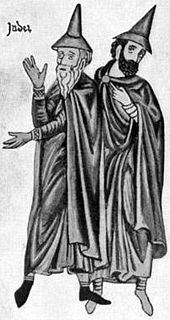 W
WJewish philosophy includes all philosophy carried out by Jews, or in relation to the religion of Judaism. Until modern Haskalah and Jewish emancipation, Jewish philosophy was preoccupied with attempts to reconcile coherent new ideas into the tradition of Rabbinic Judaism, thus organizing emergent ideas that are not necessarily Jewish into a uniquely Jewish scholastic framework and world-view. With their acceptance into modern society, Jews with secular educations embraced or developed entirely new philosophies to meet the demands of the world in which they now found themselves.
 W
WAggadah is the non-legalistic exegesis which appears in the classical rabbinic literature of Judaism, particularly the Talmud and Midrash. In general, Aggadah is a compendium of rabbinic texts that incorporates folklore, historical anecdotes, moral exhortations, and practical advice in various spheres, from business to medicine.
 W
WAnger in Judaism is treated as a negative trait to be avoided whenever possible. The subject of anger is treated in a range of Jewish sources, from the Bible and Talmud, to Halacha, Kabbalah, Hasidism and contemporary Jewish sources.
 W
WAsceticism is a lifestyle characterized by abstinence from sensual pleasures, often for the purpose of pursuing spiritual goals. Asceticism has not been a dominant theme within Judaism, but minor to significant ascetic traditions have been a part of Jewish spirituality.
 W
WIn the Abrahamic religions, the voice of God is a communication from God to human beings, heard by humans as a sound with no apparent physical source.
 W
WChabad philosophy comprises the teachings of the leaders of Chabad-Lubavitch, a Hasidic movement. Chabad Hasidic philosophy focuses on religious concepts such as God, the soul, and the meaning of the Jewish commandments.
 W
WIn theology, Divine Providence, or simply Providence, is God's intervention in the Universe. The term Divine Providence is also used as a title of God. A distinction is usually made between "general providence", which refers to God's continuous upholding of the existence and natural order of the Universe, and "special providence", which refers to God's extraordinary intervention in the life of people. Miracles generally fall in the latter category.
 W
WIn theology, the doctrine of divine simplicity says that God is without parts. The general idea can be stated in this way: The being of God is identical to the "attributes" of God. Characteristics such as omnipresence, goodness, truth, eternity, etc., are identical to God's being, not qualities that make up that being, nor abstract entities inhering in God as in a substance; in other words we can say that in God both essence and existence are one and the same.
 W
WJewish ethics is the moral philosophy of the Jewish religion or the Jewish people. A type of normative ethics, Jewish ethics may involve issues in Jewish law as well as non-legal issues, and may involve the convergence of Judaism and the Western philosophical tradition of ethics.
 W
WHappiness in Judaism and Jewish thought is considered an important value, especially in the context of the service of God. A number of Jewish teachings stress the importance of joy, and demonstrate methods of attaining happiness.
 W
WHoliness in Judaism, often referred to by the Hebrew word for holiness, Kedushah, is frequently used in Judaism to describe God; worldly places and items that have holy status, such as a Torah, other Torah literature, and Jewish ritual objects such as a menorah, tzitzit, tefillin, or mikveh; special days of the year; and people who are considered on a high spiritual level.
 W
WAnalogies between microcosm and macrocosm are found throughout the history of Jewish philosophy. According to this analogy, there is a structural similarity between the human being and the cosmos as a whole.
 W
WOrthodox Jewish philosophy comprises the philosophical and theological teachings of Orthodox Judaism. Though Orthodox Judaism sees itself as the heir of traditional rabbinic Judaism, the present-day movement is thought to have first formed in the late 18th century, mainly in reaction to the Jewish emancipation and the growth of the Haskalah and Reform movements. Orthodox Jewish philosophy concerns itself with interpreting traditional Jewish sources, reconciling the Jewish faith with the changes in the modern world and the movement's relationships with the State of Israel and other Jewish denominations.
 W
W"Pardes" refers to approaches to biblical exegesis in rabbinic Judaism or to interpretation of text in Torah study. The term, sometimes also rendered PaRDeS, is an acronym formed from the initials of the following four approaches:Peshat – "surface" ("straight") or the literal (direct) meaning. Remez – "hints" or the deep meaning beyond just the literal sense. Derash – from Hebrew darash: "inquire" ("seek") – the comparative (midrashic) meaning, as given through similar occurrences. Sod – "secret" ("mystery") or the esoteric/mystical meaning, as given through inspiration or revelation.
 W
WThe Hebrew expression Torat Eretz Yisrael refers to the idea that Torah thoughts emanating from the land of Israel are of great religious status. In the Midrash Genesis Rabbah it is stated: “there is no Torah like the Torah of the Land of Israel, and there is no wisdom like the wisdom of the Land of Israel." Another midrash in the Sifre indicates that there is a unique flavor to the land of Israel because the Torah is located in it.